Hyundai i20 vs Peugeot 3008 – Which model is better for everyday use?
Both models have their strengths – but which one suits you more?
Compare performance, efficiency, price and space directly: Hyundai i20 or Peugeot 3008?
Costs and Efficiency:
When it comes to price and running costs, the biggest differences usually appear. This is often where you see which car fits your budget better in the long run.
Hyundai i20 has a significantly advantage in terms of price – it starts at 17400 £, while the Peugeot 3008 costs 35100 £. That’s a price difference of around 17742 £.
Fuel consumption also shows a difference: Peugeot 3008 manages with 0.90 L and is therefore decisively more efficient than the Hyundai i20 with 5.20 L. The difference is about 4.30 L per 100 km.
Engine and Performance:
Power, torque and acceleration are the classic benchmarks for car enthusiasts – and here, some clear differences start to show.
When it comes to engine power, the Peugeot 3008 has a clearly edge – offering 325 HP compared to 100 HP. That’s roughly 225 HP more horsepower.
In acceleration from 0 to 100 km/h, the Peugeot 3008 is clearly quicker – completing the sprint in 6 s, while the Hyundai i20 takes 11.10 s. That’s about 5.10 s faster.
In terms of top speed, the Peugeot 3008 performs somewhat better – reaching 220 km/h, while the Hyundai i20 tops out at 183 km/h. The difference is around 37 km/h.
There’s also a difference in torque: Peugeot 3008 pulls significantly stronger with 511 Nm compared to 200 Nm. That’s about 311 Nm difference.
Space and Everyday Use:
Whether family car or daily driver – which one offers more room, flexibility and comfort?
Both vehicles offer seating for 5 people.
In curb weight, Hyundai i20 is significantly lighter – 1088 kg compared to 1648 kg. The difference is around 560 kg.
In terms of boot space, the Peugeot 3008 offers noticeable more room – 520 L compared to 352 L. That’s a difference of about 168 L.
In maximum load capacity, the Peugeot 3008 performs evident better – up to 1480 L, which is about 315 L more than the Hyundai i20.
When it comes to payload, Hyundai i20 slight takes the win – 472 kg compared to 467 kg. That’s a difference of about 5 kg.
Who comes out on top?
Overall, the Peugeot 3008 shows itself to be outperforms in nearly all aspects and secures the title of DriveDuel Champion.
It convinces with the more balanced overall package and proves to be the more versatile choice for everyday use.
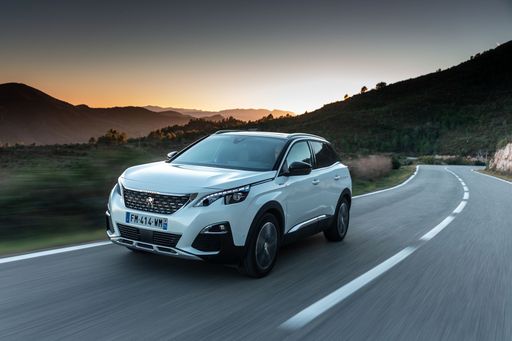
Peugeot 3008
Hyundai i20
The Hyundai i20 impresses with its sleek design and modern aesthetics, making it a stylish choice in the compact car segment. Its interior is thoughtfully designed, offering comfort and advanced technology for a pleasurable driving experience. The vehicle also stands out with its efficient performance and agile handling, making city driving a breeze.
details @ hyundai.news
@ hyundai.news
 @ hyundai.news
@ hyundai.news
 @ hyundai.news
@ hyundai.news
 @ hyundai.news
@ hyundai.news
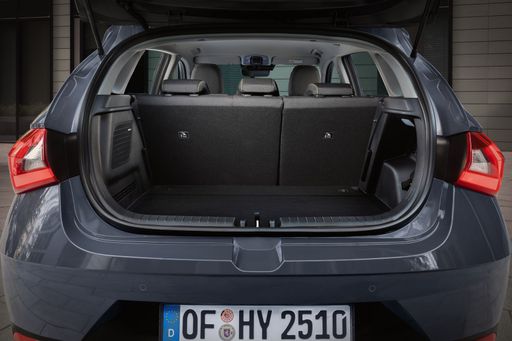 @ hyundai.news
@ hyundai.news
Peugeot 3008
The Peugeot 3008 is a compact SUV that seamlessly combines sleek design with modern functionality. Its interior offers a sophisticated and comfortable driving experience, characterised by high-quality materials and innovative technology features. With its dynamic performance and stylish aesthetics, the 3008 stands out in the competitive world of family SUVs.
details @ media.stellantis.com
@ media.stellantis.com
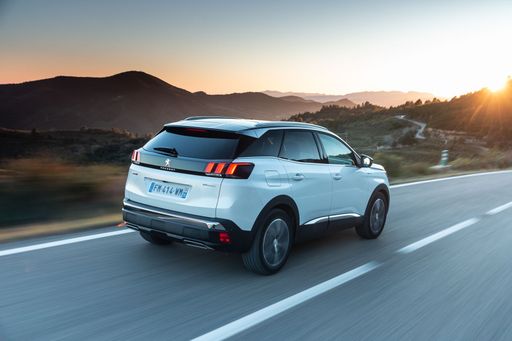 @ media.stellantis.com
@ media.stellantis.com
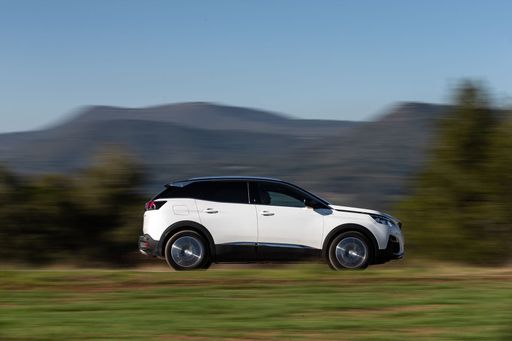 @ media.stellantis.com
@ media.stellantis.com
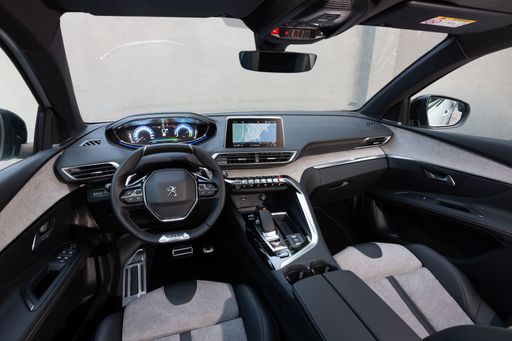 @ media.stellantis.com
@ media.stellantis.com

|

|
|
|
|
Costs and Consumption |
|
|---|---|
|
Price
17400 - 24000 £
|
Price
35100 - 51400 £
|
|
Consumption L/100km
5.2 - 5.3 L
|
Consumption L/100km
0.9 - 5.4 L
|
|
Consumption kWh/100km
-
|
Consumption kWh/100km
16.9 - 17.8 kWh
|
|
Electric Range
-
|
Electric Range
85 - 698 km
|
|
Battery Capacity
-
|
Battery Capacity
0.4 - 96.9 kWh
|
|
co2
119 - 121 g/km
|
co2
0 - 121 g/km
|
|
Fuel tank capacity
40 L
|
Fuel tank capacity
55 L
|
Dimensions and Body |
|
|---|---|
|
Body Type
Hatchback
|
Body Type
SUV
|
|
Seats
5
|
Seats
5
|
|
Doors
5
|
Doors
5
|
|
Curb weight
1088 - 1190 kg
|
Curb weight
1648 - 2337 kg
|
|
Trunk capacity
352 L
|
Trunk capacity
470 - 520 L
|
|
Length
4065 - 4075 mm
|
Length
4542 mm
|
|
Width
1775 mm
|
Width
1895 mm
|
|
Height
1450 - 1455 mm
|
Height
1641 mm
|
|
Max trunk capacity
1165 L
|
Max trunk capacity
1430 - 1480 L
|
|
Payload
450 - 472 kg
|
Payload
383 - 467 kg
|
Engine and Performance |
|
|---|---|
|
Engine Type
Petrol
|
Engine Type
Plugin Hybrid, Electric, Petrol MHEV
|
|
Transmission
Automatic, Manuel
|
Transmission
Automatic
|
|
Transmission Detail
Dual-Clutch Automatic, Manual Gearbox
|
Transmission Detail
Dual-Clutch Automatic, Reduction Gearbox
|
|
Drive Type
Front-Wheel Drive
|
Drive Type
Front-Wheel Drive, All-Wheel Drive
|
|
Power HP
79 - 100 HP
|
Power HP
145 - 325 HP
|
|
Acceleration 0-100km/h
11.1 - 13.7 s
|
Acceleration 0-100km/h
6 - 10.2 s
|
|
Max Speed
166 - 183 km/h
|
Max Speed
170 - 220 km/h
|
|
Torque
113 - 200 Nm
|
Torque
230 - 511 Nm
|
|
Number of Cylinders
3 - 4
|
Number of Cylinders
3 - 4
|
|
Power kW
58 - 74 kW
|
Power kW
107 - 239 kW
|
|
Engine capacity
998 - 1197 cm3
|
Engine capacity
1199 - 1598 cm3
|
General |
|
|---|---|
|
Model Year
2024
|
Model Year
2024 - 2025
|
|
CO2 Efficiency Class
D
|
CO2 Efficiency Class
B, A, D
|
|
Brand
Hyundai
|
Brand
Peugeot
|
What drivetrain options does the Hyundai i20 have?
The Hyundai i20 is offered with Front-Wheel Drive.
The prices and data displayed are estimates based on German list prices and may vary by country. This information is not legally binding.
